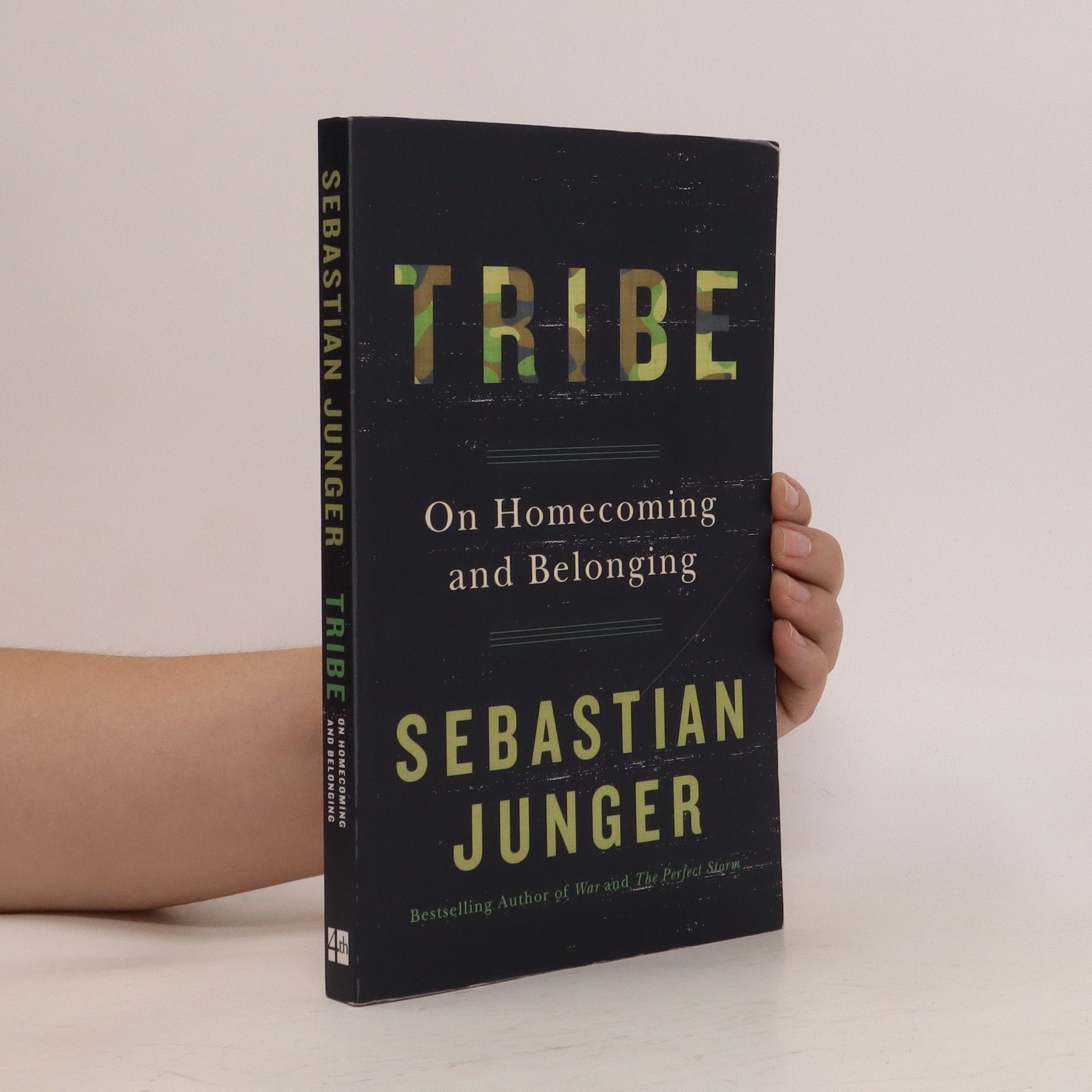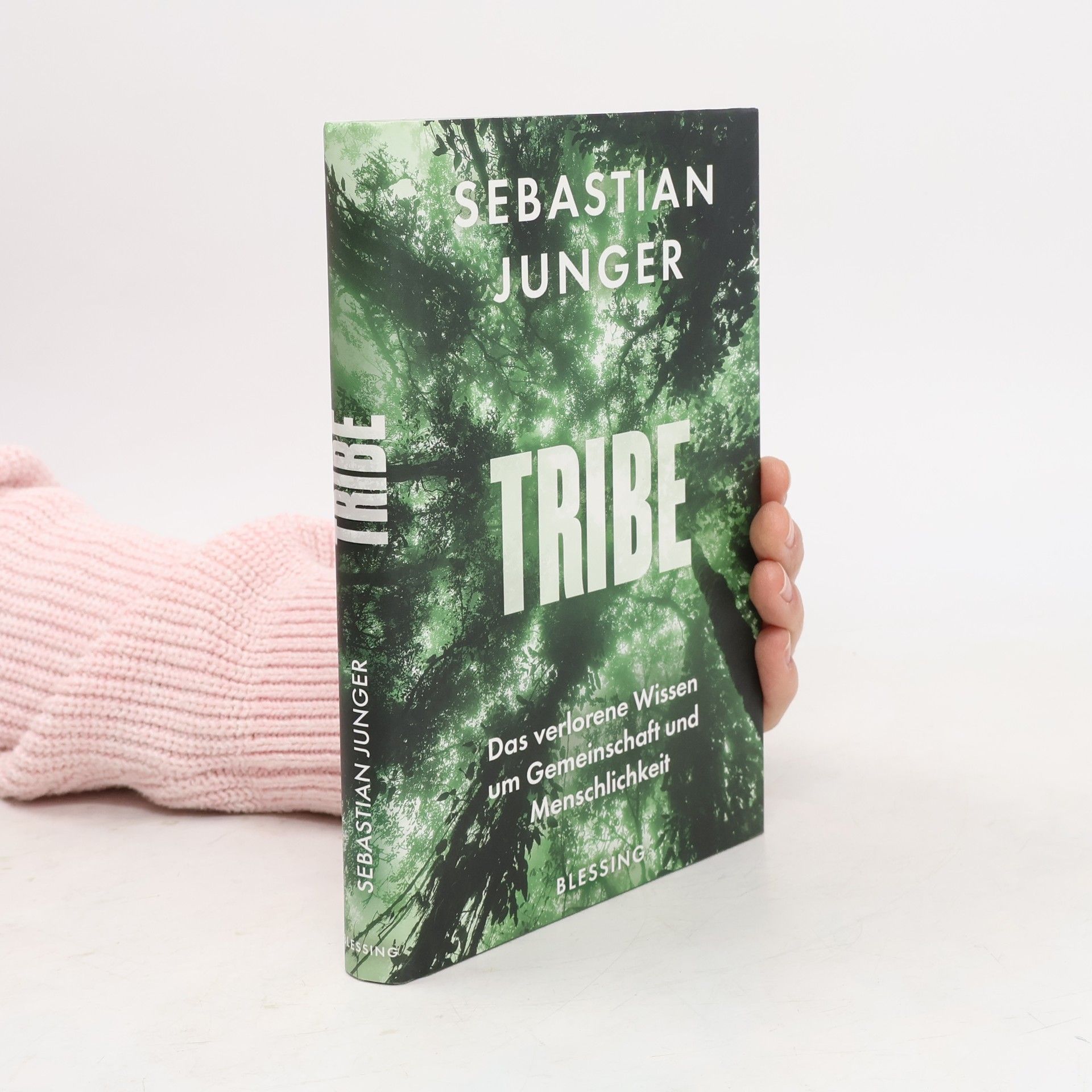For 15 months, Sebastian Junger accompanied a single platoon of thirty men from the celebrated 2nd battalion of the U.S. Army, as they fought their way through a remote valley in Eastern Afghanistan.
Sebastian Junger Livres
Cet auteur explore les aspects profonds de l'expérience humaine, abordant souvent des thèmes de conflit, de survie et des limites de l'endurance humaine. Son écriture se distingue par une observation perspicace et une capacité à saisir les réalités brutes des situations qui éprouvent l'esprit humain. Avec un engagement inébranlable envers la vérité et l'éthique journalistique, Junger s'efforce d'apporter des récits authentiques et captivants à ses lecteurs. Son travail incite à la réflexion sur la nature du courage, de la communauté et des risques inhérents auxquels les individus sont confrontés lorsqu'ils dépassent leurs limites perçues.







The Perfect Storm
- 238pages
- 9 heures de lecture
It was the storm of the century, a tempest created by so rare a combination of factors that meteorologists deemed it "the perfect storm". When it struck in October, 1991, there was virtually no warning. "She's comin' on, boys, and she's comin' on strong," radioed Captain Billy Tyne of the Andrea Gail from off the coast of Nova Scotia. Soon afterward, the boat and its crew of six disappeared without a trace. The Perfect Storm is a real-life thriller, a stark and compelling journey into the dark heart of nature that leaves listeners with a breathless sense of what it feels like to be caught, helpless, in the grip of a force beyond understanding or control.
A profound rumination on the concept of freedom from the bestselling author of The Perfect Storm Throughout history, humans have been driven by the quest for two cherished ideals: community and freedom. The two don't coexist easily: we value individuality and self-reliance, yet are utterly dependent on community for our most basic needs. In this intricately crafted and thought-provoking book, Sebastian Junger examines this tension that lies at the heart of what it means to be human. For much of a year, Junger and three friends-a conflict photographer and two Afghan war vets-walked the railroad lines of the east coast. It was an experiment in personal autonomy, but also in interdependence. Dodging railroad cops, sleeping under bridges, cooking over fires and drinking from creeks and rivers, the four men forged a unique reliance on one another. In Freedom, Junger weaves his account of this journey together with primatology and boxing strategy, the role of women in resistance movements and apache renegrades, and the brutal reality of life on the Pennsylvania frontier. Written in exquisite, razor-sharp prose, the result is a powerful examination of the primary desire that defines us.
A riveting collection of literary journalism by the bestselling author of The Perfect Storm, capped off brilliantly by a new Afterword and a timely essay about war-torn Afghanistan -- a superb eyewitness report about the Taliban's defeat in Kabul -- new to book form. Sebastian Junger has made a specialty of bringing to life the drama of nature and human nature. Few writers have been to so many disparate and desperate corners of the globe. Fewer still have met the standard of great journalism more consistently. None has provided more starkly memorable evocations of extreme events. From the murderous mechanics of the diamond trade in Sierra Leone, to an inferno forest fire burning out of control in the steep canyons of Idaho, to the forensics of genocide in Kosovo, this collection of Junger's reporting will take readers to places they need to know about but wouldn't dream of going on their own. In his company we travel to these places, pass through frightening checkpoints, actual and psychological, and come face-to-face with the truth.
War
- 40pages
- 2 heures de lecture
For one year, in 2007-2008, Sebastian Junger accompanied 30 men, a single platoon, from the storied 2nd battalion of the U.S. Army as they fought their way through a remote valley in eastern Afghanistan. Over the course of five trips, Junger was in more firefights than he could count, as men he knew were killed or wounded and he himself was almost killed. Junger gives us insight into the truths of combat: the fear, the honour, and the trust among men. He describes the endless, body-numbing anticipation of battle; the unquestioned and automatic risks soldiers take; and the adrenaline-fuelled confusion of being ambushed
From the author of THE PERFECT STORM and WAR comes a book about why men miss war, why Londoners missed the Blitz, and what we can all learn from American Indian captives who refused to go home. Tribe is a look at post-traumatic stress disorder and the challenges veterans face returning to society. Using his background in anthropology, Sebastian Junger argues that the problem lies not with vets or with the trauma they've suffered, but with the society to which they are trying to return. One of the most puzzling things about veterans who experience PTSD is that the majority never even saw combat--and yet they feel deeply alienated and out of place back home. The reason may lie in our natural inclination, as a species, to live in groups of thirty to fifty people who are entirely reliant on one another for safety, comfort and a sense of meaning: in short, the life of a soldier. It is one of the ironies of the modern age that as affluence rises in a society, so do rates of suicide, depression and of course PTSD. In a wealthy society people don't need to cooperate with one another, so they often lead much lonelier lives that lead to psychological distress. There is a way for modern society to reverse this trend, however, and studying how veterans react to coming home may provide a clue to how to do it. But it won't be easy.
Decades before the American Revolution, Benjamin Franklin lamented that English settlers were constantly fleeing over to the Indians -- but Indians almost never did the same. Tribal society has been exerting an almost gravitational pull on Westerners for hundreds of years, and the reason lies deep in our evolutionary past as a communal species. The most recent example of that attraction is combat veterans who come home to find themselves missing the incredibly intimate bonds of platoon life. The loss of closeness that comes at the end of deployment may help explain the high rates of post-traumatic stress disorder suffered by military veterans today. Combining history, psychology, and anthropology, TRIBE explores what we can learn from tribal societies about loyalty, belonging, and the eternal human quest for meaning. It explains the irony that -- for many veterans as well as civilians -- war feels better than peace, adversity can turn out to be a blessing, and disasters are sometimes remembered more fondly than weddings or tropical vacations. TRIBE explains why we are stronger when we come together, and how that can be achieved even in today's divided world.
A profound rumination on the concept of freedom from the bestselling author of The Perfect Storm
A near-fatal health emergency leads to this powerful reflection on death—and what might follow—by the bestselling author of Tribe and The Perfect Storm. 'Mind blowingly brilliant' PHILIPPA PERRY
Unser Trauma: eine Gesellschaft ohne Gemeinschaft »Entbehrungen machen dem Menschen nichts aus, er ist sogar auf sie angewiesen; worunter er jedoch leidet, ist das Gefühl, nicht gebraucht zu werden. Die moderne Gesellschaft hat die Kunst perfektioniert, Menschen das Gefühl der Nutzlosigkeit zu geben. Es ist an der Zeit, dem ein Ende zu setzen.« Sebastian Junger Warum beschließen Soldaten nach ihrer Rückkehr aus dem Krieg und in die Heimat, sich zu neuen Einsätzen zu melden? Warum sind Belastungsstörungen und Depressionen in unserer modernen Gesellschaft so virulent? Warum erinnern sich Menschen oft sehnsüchtiger an Katastrophenerfahrungen als an Hochzeiten oder Karibikurlaube? Mit Tribe hat Sebastian Junger eines der meistdiskutierten Werke des Jahres vorgelegt. Er erklärt, was wir von Stammeskulturen über Loyalität, Gemeinschaftsgefühl und die ewige Suche des Menschen nach Sinn lernen können.

